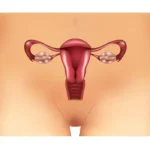Understanding the Right Frequency for Conception
Planning to start a family? If you’re wondering how often should you have sex to get pregnant, you’re not alone! Many couples assume that more is better, but the truth is, timing matters just as much as frequency.
According to studies, the average couple tries about 78 times before successfully conceiving, which roughly translates to six months of active attempts. But does this mean you need to have sex every single day? Not necessarily! Let’s dive into the best strategies to maximize your chances of conception while keeping the journey stress-free.
Do You Need to Have Sex Every Day to Conceive?
While daily intercourse sounds like a solid plan, it might not be necessary—or practical. Having sex every day can feel more like a task than an intimate experience over time. Additionally, sperm quality can decrease if there’s not enough time for replenishment, particularly if the male partner has a low sperm count.
So, what’s the best frequency?
💡 Doctors recommend having sex every other day during the fertile window—this gives sperm enough time to regenerate while ensuring there’s always sperm available to meet the egg.

When Should You Have Sex to Boost Conception Chances?
Tracking ovulation is the key to successful conception. The best time to have sex is during your fertile window, which includes:
✔️ The five days before ovulation
✔️ Ovulation day itself
✔️ The day after ovulation
How to Identify Your Fertile Days?
1️⃣ Monitor your cervical mucus – It becomes clear, slippery, and stretchy like egg whites.
2️⃣ Track your basal body temperature (BBT) – A slight rise may indicate ovulation.
3️⃣ Use an ovulation predictor kit (OPK) – It detects the LH surge before ovulation.
4️⃣ Follow a fertility tracking app – Apps help estimate your most fertile days.
📌 Best practice: Start having sex every other day a week before ovulation and daily during peak fertility days for the highest chance of success.
Does Sex Outside the Fertile Window Help?
Yes! While sex outside the fertile window may not directly result in conception, research shows that regular sex boosts fertility by:
✔️ Regulating the immune system – Helps prepare the body for pregnancy.
✔️ Increasing sperm health – Frequent ejaculation keeps sperm fresh and mobile.
✔️ Reducing stress – Sex releases oxytocin, which helps manage anxiety.
💡 Tip: Even when you’re not actively trying, maintaining a healthy sex life can improve your chances of pregnancy in the long run.
When to Limit Sex to Improve Fertility?
While frequent sex is beneficial, there are cases where limiting intercourse can be helpful, such as:
🚨 Male fertility issues – If the sperm count is low, doctors may recommend spacing out intercourse.
🚨 Medical evaluations – If either partner is undergoing fertility tests, doctors may suggest abstaining for a while.
🚨 Ovulation timing – Some experts suggest waiting 2-3 days before ovulation to allow for stronger, more concentrated sperm release.
Pro Tip: If you’re struggling to conceive for more than 12 months (or 6 months if you’re over 35), consult a fertility specialist.
Does Age Affect, How Often Should You Have Sex To Get Pregnant?
Yes! Age plays a crucial role in fertility.
👩 Women Under 35 – Regular intercourse every other day during the fertile window is sufficient.
👩 Women Over 35 – Conception chances decline, so daily sex during peak fertility days is recommended.
👨 Men’s Age Matters Too! – Sperm quality declines with age, so maintaining overall health and nutrition is key.
FAQs
1. Should we have sex multiple times a day to increase our chances?
Not necessary! Sperm count and motility need time to recover, so once per day during ovulation is more effective than multiple times a day.
2. Does diet impact fertility?
Yes! A balanced diet with folic acid, zinc, and omega-3s can boost sperm and egg quality, improving conception chances.
3. How long should we try before seeking medical help?
🔹 Under 35? Try for 12 months before consulting a doctor.
🔹 Over 35? Seek medical help after 6 months of trying.
Final Thoughts
Planning a pregnancy should be an exciting and fulfilling journey, not a stressful chore. While timing sex around ovulation increases the chances of getting pregnant, enjoying intimacy and keeping the experience stress-free is just as important.
💡 Key Takeaways:
✔️ Have sex every other day during the fertile window.
✔️ Daily intercourse during ovulation can improve conception chances.
✔️ Avoid overthinking it—stress can negatively impact fertility.
✔️ If you haven’t conceived in a year, consult a specialist.
💖 Relax, enjoy the process, and trust your body! Your little miracle will come when the time is right.
Disclaimer :
The information provided in this blog is for educational and informational purposes only and should not be considered medical advice. Every individual’s body is different, and fertility journeys vary from person to person. If you are experiencing difficulty conceiving or have concerns about your reproductive health, it is strongly recommended that you consult a qualified healthcare professional or gynecologist for personalized guidance.
The content in this article is based on general research, expert insights, and medical studies, but it should not be used as a substitute for professional medical diagnosis, treatment, or consultation. The author and publisher are not responsible for any actions taken based on the information in this blog.
If you are planning to conceive, undergoing fertility treatments, or have underlying health conditions, please seek medical supervision before making any changes to your lifestyle, diet, or sexual health routine.
References/Resources:
1. How long does it usually take to get pregnant?; NHS; https://www.nhs.uk/pregnancy/trying-for-a-baby/how-long-it-takes-to-get-pregnant/
2. Right time for sex; Fertility Coalition; https://www.yourfertility.org.au/everyone/timing
3. Timing of sex for pregnancy; Tommy’s; https://www.tommys.org/pregnancy-information/planning-a-pregnancy/how-to-get-pregnant/timing-sex-pregnancy
4. Sciarra. F, Campolo. F, Franceschini. E, et al.; Gender-Specific Impact of Sex Hormones on the Immune System; PubMed Central; https://pmc.ncbi.nlm.nih.gov/articles/PMC10094624/
5. Calculating Your Monthly Fertility Window; The Johns Hopkins Medicine; https://www.hopkinsmedicine.org/health/wellness-and-prevention/calculating-your-monthly-fertility-window#
6. Shmerling. R. H, Shmerling. A; Fertility and diet: Is there a connection?; Harvard Health Publishing; https://www.health.harvard.edu/blog/fertility-and-diet-is-there-a-connection-2018053113949
7. Dr. Witt. B; Trying to Get Pregnant? Here’s When to Have Sex.; American College of Obstetricians and Gynecologists; https://www.acog.org/womens-health/experts-and-stories/the-latest/trying-to-get-pregnant-heres-when-to-have-sex
Also Read :
Things You Must Know About Getting Pregnant in Your 30s
Family Planning 101: 7 Essential Investments for Your Journey
7 Most Reliable Non-Hormonal Birth Control Methods for Women



